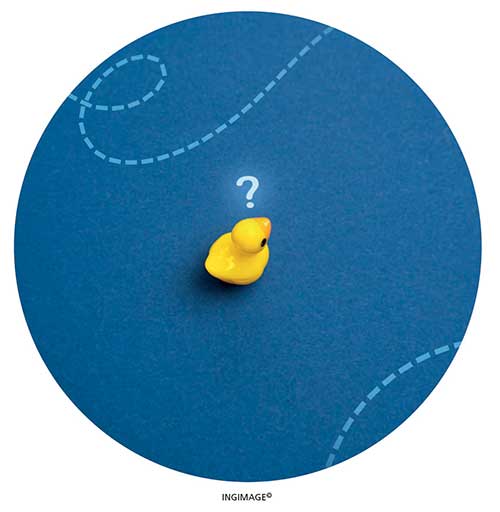PERSONAL DEVELOPMENT

BE TRUE TO YOURSELF
The journey towards self-discovery
BY Archana Law

“This above all: to thine own self be true. And it must follow, as the night the day, thouh canst not then be false to any man,” William Shakespeare wrote.
These words of advice, which were uttered by Polonius to his son Laertes (Act I, Hamlet), clearly state that to maintain honest relations with others, we must first be true to ourselves.
The key question here is: to which ‘self’ should one be true – the one that shows up when we’re in a bad mood or the other when we feel humbled by our mistakes?
And is it the voice that speaks from the dark recesses of our hearts when we are depressed or upset, or the one that appears during those fleeting moments when life seems fanciful and light?
People often believe the voice in their heads; and they rely on it to define who they are and what they’re capable of. Do they rely on what they’re feeling emotionally or believe that their relationship status, job title, religious affiliation or other social labels describe who they are?
The desire to ‘know thyself’ is part of being born a human. Sun Tzu noted: “If you know the enemy and know yourself, you need not fear the result of a hundred battles. If you know yourself but not the enemy, for every victory gained you will also suffer a defeat. If you know neither the enemy nor yourself, you will succumb in every battle.”
Since self-discovery is an evolving process, embarking on this journey can be an incredibly rewarding and life changing experience. It involves taking the time to learn about yourself – your values, beliefs and motivations – and understanding how it shapes the decisions you make in life.
While such a journey can be daunting, there are many ways in which to begin exploring and gaining a deeper understanding of yourself.
The journey begins with self-awareness: turning our gaze inward and looking at our own minds; and considering the flickering thoughts, experiences, emotions, perceptions, memories and associations that are going through it. It helps us identify our blind spots, recognise the interplay of emotions in our thinking, gain an objective understanding of personal strengths and weaknesses, and practice self-regulation.
Your mental chatter is the voice inside your head. That constant stream of thoughts that pass through your mind can be positive, negative or neutral. The average person has over 60,000 thoughts a day with 90 percent of them being repetitive and 75 percent being negative, driven by the flight or fight part of our brain.
While it is virtually impossible to eliminate self-talk, understanding and managing it can help you navigate life’s challenges.
The mind talks incessantly because we give it a job and use it as a protective mechanism. And because it makes us feel more secure, we constantly use our mind to buffer ourselves from life – instead of living it. In our quest to hold the world together, we’re really trying to hold ourselves together.
Tuning into your emotions helps you recognise your internal state, preferences and emotions, and their effects. When you shine the light of awareness on your emotions, you gain powerful control even over external situations that may be beyond your control. This helps identify what you’re feeling and why, as well as the link between your thoughts, actions and words, enabling you to manage them better.
Without this capability, you are at the mercy of your emotions.
Awareness of how your emotions and thought patterns affect you is the foundation of emotional competence. This awareness helps you to adjust and continually improve your capacity to manage impulsive feelings, stay motivated and understand how people around you are feeling.
By pinpointing the actions that enhance our effectiveness and accepting feedback from others about our observable conduct, we gain valuable insights that can guide our personal development. It gives us a clear understanding of how our behaviour is perceived by others and sensitises us to our blind spots or biases.
Our emotions, thoughts, beliefs and values that lie beneath the surface can be harnessed for mindful and purposeful action. There’s a phenomenal source of energy within us that’s distinct from external sources of energy. It gushes up spontaneously from deep inside; and restores, replenishes and recharges us.
Science shows how an underlying energy field forms into atoms, which then combine into molecules, ultimately manifesting as the entire physical universe. The same is true inside us, where this underlying energy serves as the foundation of our mental and emotional patterns, as well as our inner drives, urges and instinctual reactions.
Discovering and understanding one’s identity contributes significantly to developing one’s self-worth, self-confidence and self-belief.




Leave a comment